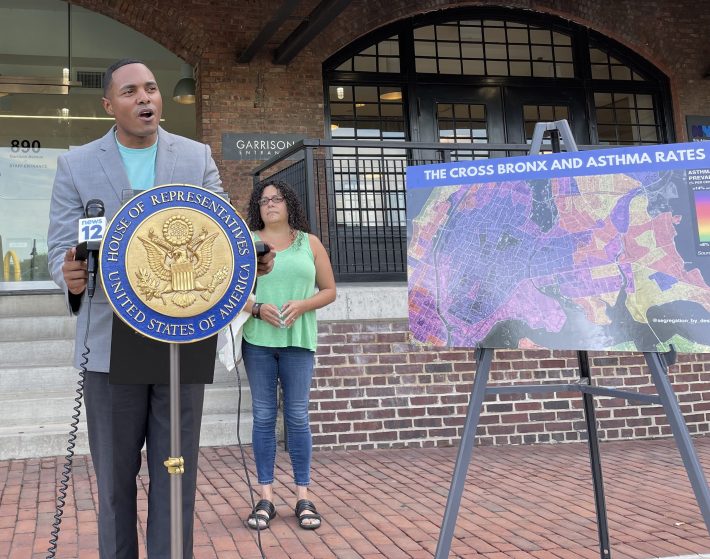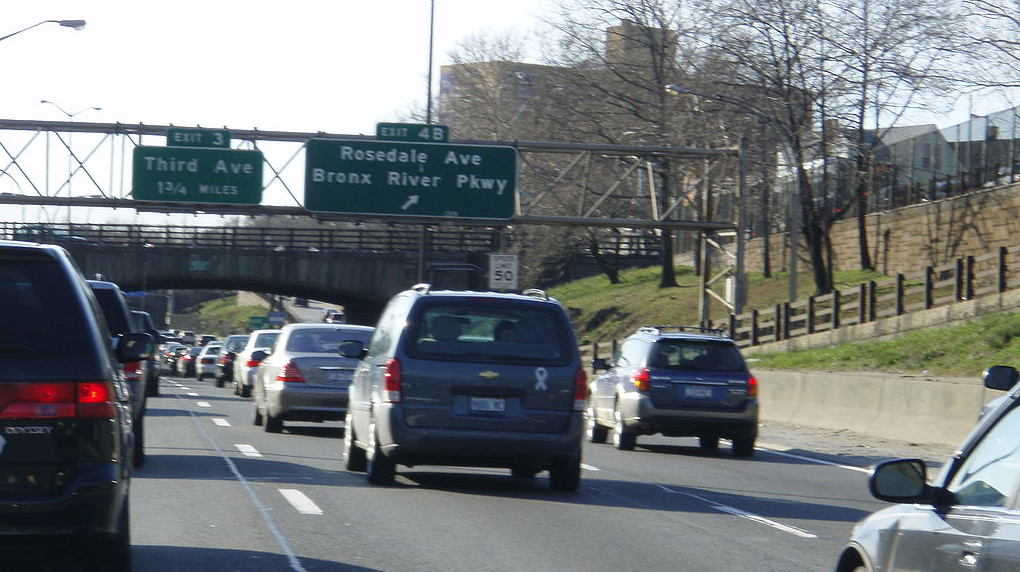The federal government should give a financial and bureaucratic boost to the effort to cap the Cross Bronx Expressway, says a Bronx congressman hoping to emulate federal backing for a similar project in Texas.
U.S. Rep. Ritchie Torres wants the U.S. Department of Transportation to add the Cross Bronx to its "Emerging Projects" program, which helps jumpstart high-cost concepts into real, on-the-ground projects, he said in a letter issued Tuesday [PDF].
"I would welcome your agency’s guidance on building a comparable partnership between U.S. DOT and the city of New York in the service of transforming the Cross Bronx Expressway [similar to the] recently unveiled federal-city partnership between U.S. DOT and the city of Austin," Torres wrote to Transportation Secretary Pete Buttigieg and team.
Torres's reference to Austin's "Emerging Projects" agreement effectively amounts to cal for the feds to become an active partner in the city's still-in-development vision to "cap" the highway to make room for housing, parks, and other improvements. In Austin, U.S. DOT committed to help the city manage $22 billion worth of transportation projects, including a $7 billion public transportation project and an effort to cap the I-35 highway and reconnect the communities it bisects.
The effort to cap the Cross Bronx already won a $2 million RAISE grant for public input sessions and an eventual study of what do with the notoriously hated neighborhood-splicing highway.
New York City has already held a series of open houses using the RAISE funding to hear what Bronxites have to say about the highway, with more meetings scheduled for the summer. The city's plan is for the study to be published in 2024 with short-term and long-term ideas to "re-envision" the highway and reconnect the neighborhoods it cuts through.
Federal officials pitched the U.S. DOT partnership with Austin — the first and so far only of its kind — as a way for the Texas capital to unlock more funding for massive, multi-billion dollar infrastructure projects that create safer streets and reconnect communities separated by awful planning decisions of the past.
Capping the Cross Bronx would no doubt meet those criteria. A 2018 estimate by Columbia Prof. Peter Muenning pegged the cost of capping the 2.4-mile below-grade stretch of the highway at $757 million.
Covering the highway would literally extend the lifespans of over 200,000 city residents near the highway by raising their “quality-adjusted life years, a combined measure of health and longevity” by an average of two months, Muenning said at the time.

The Cross Bronx today serves as a traffic funnel for some 200,000 vehicles per day, including 300 diesel trucks per hour.
The gas-spewing vehicles cut through the Bronx, filling the lungs of its inhabitants with pollutants that have made the areas around the highway hotspots for diseases like asthma and hypertension.
Congestion pricing, meanwhile — which will reduce overall emissions in the region — could wind up diverting more trucks to the highway, something the MTA and New York State have promised to mitigate.
Mayor Adams and his administration have not committed to capping the highway, but Torres said he and his community would prefer it.
"The Bronx community and I have our own vision for reimagining the Cross Bronx that consists of capping the below-grade components of the highway with a deck park to prevent air pollutants, like particulate matter 2.5, from recirculating in the air and causing cardiovascular and respiratory disease, such as asthma," he said in the letter.
A rep for U.S. DOT declined to comment, saying the agency would respond to Torres directly.






